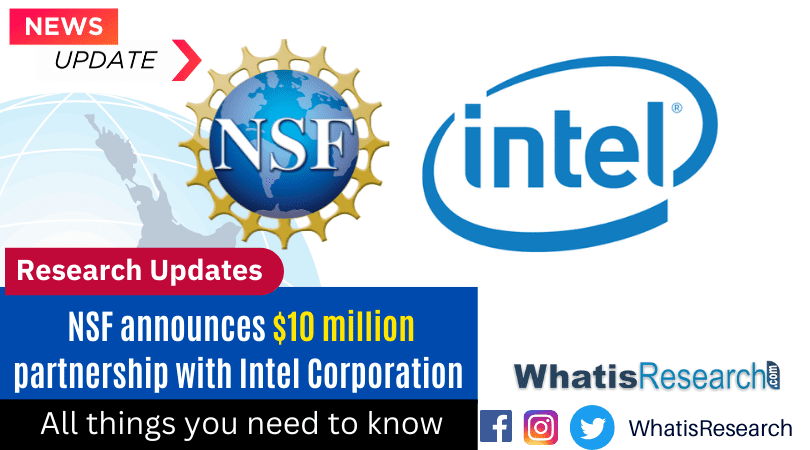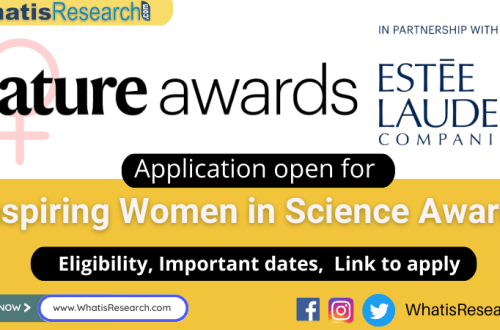RESEARCH NEWS UPDATES: In a recent notification, NSF announces $10 million partnership with Intel Corporation to train and build a skilled semiconductor manufacturing workforce. The United States National Science Foundation and Intel Corporation have established a partnership to provide possibilities for fair STEM education and to educate and train the country’s semiconductor manufacturing workforce.
NSF announces $10 million partnership with Intel Corporation.
Intel and NSF will provide $10 million to assist the creation of a high-quality manufacturing workforce at all stages of production and innovation, as outlined in a new Dear Colleague Letter, or DCL, following the historic passing of the “CHIPS and Science Act.”
What is the background of this partnership?
The global pandemic and statewide semiconductor shortage have made it challenging for the chip industry to meet the rising demand for chip-based products. Even though there is a large demand for chips in the United States, only around 10% of the world’s supply is made there. By promoting the education and training of the American workforce involved in semiconductor production, awards made via this DCL will aid in the solution of this issue.
“We are thrilled to continue our partnership with Intel to support research and workforce development to advance semiconductor design and manufacturing,” said NSF Director Sethuraman Panchanathan. “It’s not just about chips — it’s about unlocking investments in America’s science and technology research, STEM education and workforce. This collaboration presents a remarkable opportunity for students entering this field.”
Must read: Best academic translation service
What are the benefits of this partnership?
NSF and Intel will fund a wide range of breakthroughs through this partnership that expands engineering technologies and cutting-edge instruction and training for semiconductor manufacturing and design. In addition, it will enhance and make STEM education more egalitarian at two-year colleges and four-year universities, including those that serve minorities.
“This partnership is important and timely,” said James L. Moore III, NSF assistant director for Education and Human Resources. “There is an immediate need to advance semiconductor manufacturing education, research and design in the United States. Given the recent signing of the ‘CHIPS and Science Act,’ American semiconductor research and production are likely to increase over the next five years.
“NSF and Intel have a long history of successful partnerships,” said Erwin Gianchandani, assistant director for Technology, Innovation and Partnerships, NSF’s newest directorate. “This joint investment will advance innovative and evidence-based practices in the education and preparation of the domestic-skilled semiconductor industry technical workforce. And together, NSF and Intel will jumpstart bold and transformative activities that will address immediate semiconductor manufacturing challenges and workforce shortages in the U.S.”
“This new program will provide increased opportunities in higher education for students from historically underrepresented groups and help foster a diverse semiconductor manufacturing workforce across the country,” said Gabriela Cruz Thompson, Intel Labs senior director of university research and collaboration. “We look forward to continuing our longstanding partnership with NSF to support STEM education at two-year colleges and four-year institutions and expanding the skilled technician and engineering workforce.”
This DCL is a piece of a previously announced 10-year partnership between NSF and Intel that would invest $100 million over time to address worker shortages, challenges with semiconductor design and manufacturing, and other issues.
The workforce development of the semiconductor industry for high-tech domains that are essential to future semiconductor design and manufacture. it will be the main objective of projects financed by this DCL.
Who can apply for this scholarship?
Those who are interested can submit applications for awards through two NSF programs: the Scholarships in Science, Technology, Engineering, and Mathematics program, which helps higher education institutions provide scholarships for academically gifted, low-income students, and the Advanced Technological Education program, which supports the education of the skilled technical workforce at the undergraduate and secondary school levels.
News Source: Click here






